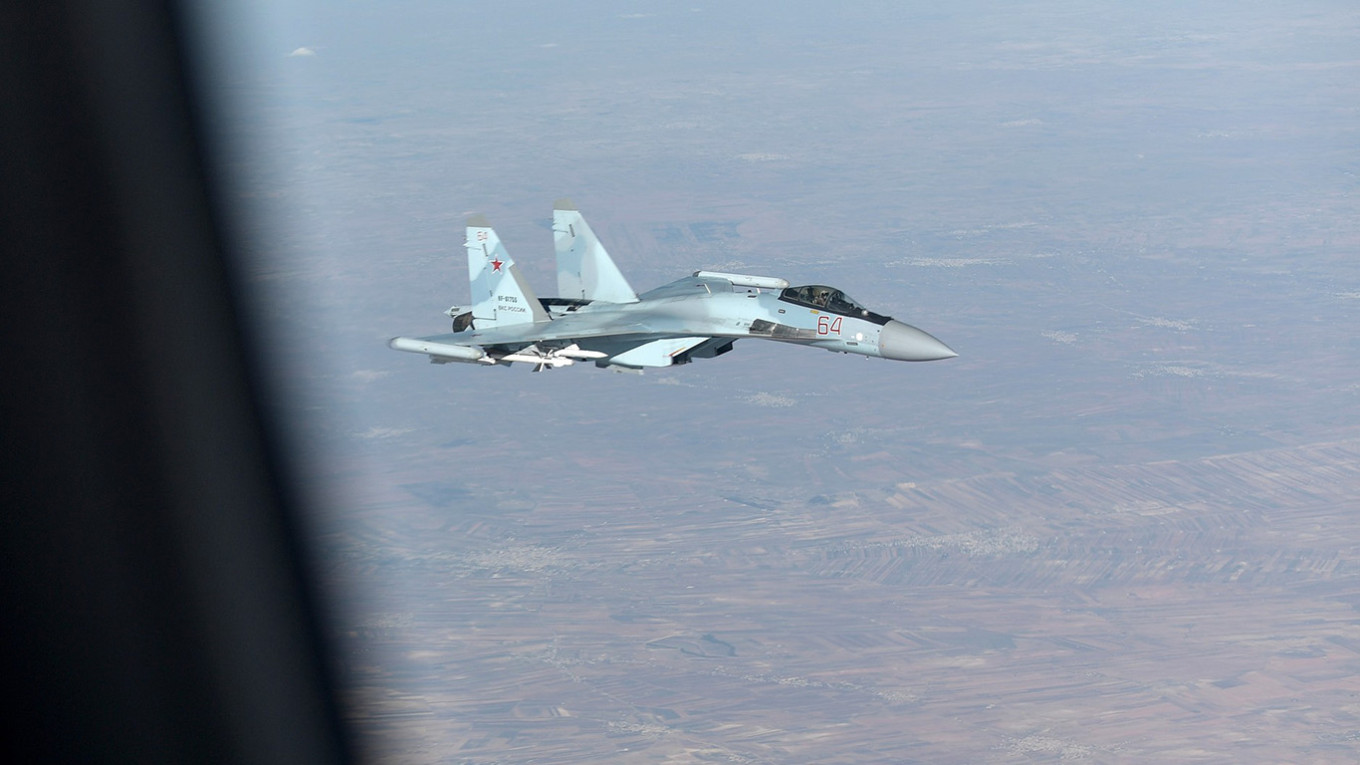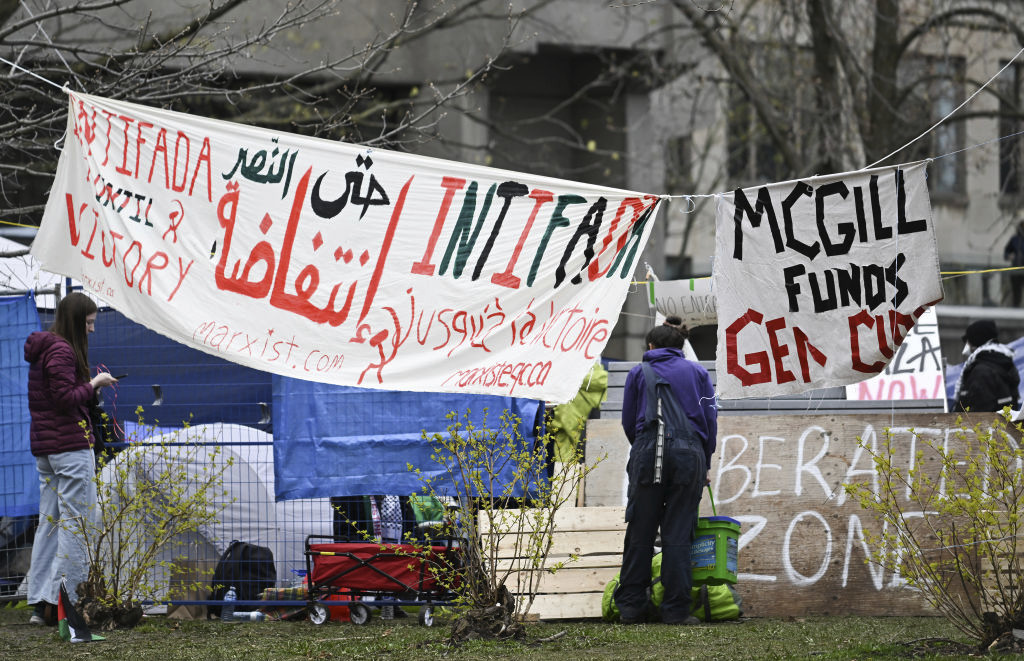The Kremlin is capitalizing on Syria’s energy crisis in an effort to keep its military bases in the country, even as it refuses to hand over fugitive former dictator Bashar al-Assad to the new government.
Syria has been in desperate need of oil, diesel and gas since December 2024, when Islamist rebel forces overthrew Assad — whose regime Moscow had propped up for over a decade.
Moscow has already begun oil and gas shipments to Syria in an effort to maintain its military presence there, three sources familiar with the Kremlin’s foreign policy told The Moscow Times, speaking on condition of anonymity due to the sensitivity of the matter.
The deliveries were launched in February at President Vladimir Putin’s instruction, with efforts made to keep the shipments discreet, the sources said.
“Support for the Syrian people — who we regard as our friends — is indeed underway, and we’ve been instructed to proceed quietly,” a source in Russia’s oil and gas industry told The Moscow Times.
Though the troubles facing Assad’s regime had long been known to Moscow, his sudden ousting by Turkish-backed rebel forces left Russia without allies on the ground, a Russian diplomat familiar with the situation recalled.
“All our friends in Syria switched sides on the very day of Assad’s flight and the opposition’s arrival — even on their social media. This created enormous difficulties for our policy, both in Syria and across the Middle East,” the diplomat said.
 A Russian Air Force jet fighter in Syria.
kremlin.ru
A Russian Air Force jet fighter in Syria.
kremlin.ru
Granting asylum to Assad and his family in Russia only worsened Moscow’s relationship with Syria’s new leadership and fueled negative sentiment among the Syrian public, the diplomat added.
“That was another nail in the coffin of our friendship with the Syrian people, but we had no other choice,” he said.
But Moscow has made clear to the new Syrian government that it will not hand over Assad, even though the topic reportedly came up during negotiations.
“Our leader’s [Putin’s] position is that we don’t give up our own, no matter what,” one Russian diplomat close to the Kremlin told The Moscow Times.
“Assad had many enemies in the Middle East. But giving him up would tarnish Putin’s authority; it would be seen as a betrayal of our core principles. And the new Syrian authorities would tear him to pieces,” said another diplomat.
For nearly a decade, Russia held significant sway in the region after intervening in the country’s civil war in 2015 to support Assad. Now, its future influence depends heavily on relations with Turkey, the U.S. and Israel, a Kremlin-linked Middle East analyst told The Moscow Times.
The expert noted that Moscow has been displeased with Israel, which has fully occupied the Golan Heights and attacked Syrian military bases and defense industry facilities since Assad’s ouster.
“We made many mistakes, everyone here [in the Kremlin and Foreign Ministry] knows that. But publicly, we try to project optimism. We now have to rebuild relationships from scratch,” the analyst said.
To retain its influence in Syria, Moscow must show the new regime that it will be consistent in its policy of backing Syrian statehood and sovereignty; the fight against terrorism; rejection of neocolonialism; and a legal resolution to the conflict, experts from the Kremlin-linked Valdai Club said. At the same time, Russia must be ready to act with tactical flexibility, they added.
Despite initial pessimism about Russia’s continued influence in Syria following Assad’s departure, as reflected in intelligence reports and policy memos, Russian forces still control its naval facility in Tartus and the Khmeimim Air Base.
According to Middle East scholar Ibrahim Ibrahimov, Russia may ultimately hold on to both bases, albeit in a “scaled-down format.” Alternatively, Russia could keep its naval base at Tartus and give up the Khmeimim air base, he said.
Turkey, which backs the new Syrian government, has reportedly been pushing for such an arrangement, said Nikolai Sukhov, a senior fellow at the Institute of World Economy and International Relations who until recently headed the Russian state-funded cultural diplomacy agency’s mission in Syria.
In exchange, Moscow would be expected to help rebuild infrastructure destroyed by Russian airstrikes, provide fuel and food and assist in restoring Syria’s health care system.
In addition, Russia — which had helped the Assad regime print its national currency — resumed banknote shipments just days after Putin’s Feb. 12 phone call with interim Syrian President Ahmad al-Sharaa. A second shipment of banknotes arrived in Damascus in early March.
“The supply of our energy resources was one of the most important topics during the meeting between our negotiators and Syria’s transitional president,” a Russian government official told The Moscow Times. “After the phone call between our president and al-Sharaa, the order was given to begin deliveries.”
Syria’s fuel crisis began in December 2024, after Assad was ousted and oil shipments from Iran — one of the former regime’s closest allies — were halted. This created an acute shortage for the new government despite Syria’s abundant oil fields, most of which are located in areas outside its control.
Energy shipments
Global traders and shipowners remain cautious due to Western sanctions on Syria — even as the European Union eases restrictions and the United States offers waivers for essential needs.
The Kremlin, however, has moved quickly to capitalize on Syria’s economic instability. Over the past month, several fuel tankers from Russia have arrived in Syria.
On March 25, the Sakina, a Barbados-flagged crude oil tanker with a deadweight of 157,000 metric tons, docked at a Syrian port and unloaded approximately 100,000 tons of oil, according to TankerTrackers.com.
Another Barbados-flagged tanker, the Aquatica, carrying Russian light sweet crude, arrived at the port of Baniyas on March 21, local media reported.
Both internationally sanctioned ships loaded oil in Russia’s Murmansk region in February and delivered 100,000 tons each, according to Reuters.
Earlier in March, the Prosperity tanker arrived at Baniyas, home to Syria’s two largest oil refineries, the state-run SANA news agency reported. The vessel, which delivered 37,000 tons of diesel, had been loaded at Russia’s Baltic Sea port of Primorsk, according to Noam Raydan of the Washington Institute for Near East Policy.
Built in 2006, Prosperity was formerly NS Pride of Sovcomflot and is now affiliated with Dubai-based Fornex, a company active in Russian energy trading. The ship is sanctioned by the U.S., the EU and the U.K.
All of these tankers turned off their transponders when approaching Syrian ports or entered false destinations into the Automatic Identification System (AIS) to avoid detection.
Souhire Medini, a French diplomat and visiting fellow at the Washington Institute for Near East Policy, highlighted the pragmatism behind Russia’s actions.
“After participating in the destruction of Syria, Russia now is ready to take advantage of the vacuum and re-anchor itself on Syria via energy supply,” Medini wrote on X.
For Syria’s new authorities, the continued presence of Russian military bases could serve as a counterbalance to U.S. forces in the east, Israeli forces in the south and Turkish troops in the north, independent Middle East expert Ruslan Suleymanov told The Moscow Times.
“Moreover, al-Sharaa understands that Russia is a permanent member of the UN Security Council and could potentially participate in a vote to remove Hayat Tahrir al-Sham from the terrorist list. Russia also holds veto power. That’s why al-Sharaa wouldn’t want to provoke a confrontation with Moscow — and for now, we’re seeing continued interest in Russia,” Suleymanov said.
He added that much depends on Moscow itself.
“What Russia can offer in return — that remains an open question,” he said.
A Message from The Moscow Times:
Dear readers,
We are facing unprecedented challenges. Russia's Prosecutor General's Office has designated The Moscow Times as an "undesirable" organization, criminalizing our work and putting our staff at risk of prosecution. This follows our earlier unjust labeling as a "foreign agent."
These actions are direct attempts to silence independent journalism in Russia. The authorities claim our work "discredits the decisions of the Russian leadership." We see things differently: we strive to provide accurate, unbiased reporting on Russia.
We, the journalists of The Moscow Times, refuse to be silenced. But to continue our work, we need your help.
Your support, no matter how small, makes a world of difference. If you can, please support us monthly starting from just $2. It's quick to set up, and every contribution makes a significant impact.
By supporting The Moscow Times, you're defending open, independent journalism in the face of repression. Thank you for standing with us.
Continue
![]()
Not ready to support today?
Remind me later.

 By The Moscow Times | Created at 2025-04-03 14:25:26 | Updated at 2025-04-04 09:39:13
19 hours ago
By The Moscow Times | Created at 2025-04-03 14:25:26 | Updated at 2025-04-04 09:39:13
19 hours ago








